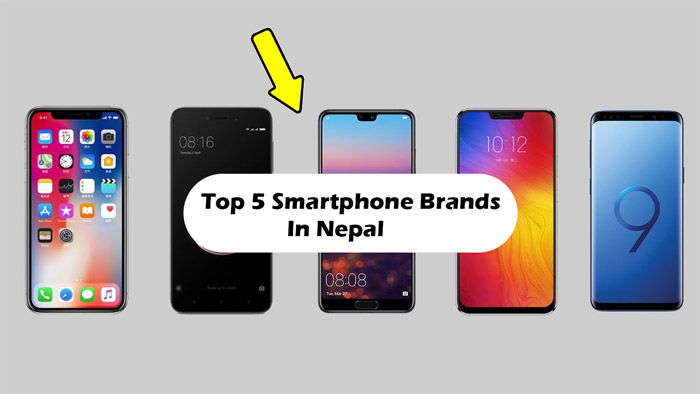
If you are curious about what is going o the Nepalese market on the
smartphone brands and how much shares are holding by different brands then
this article to definitely for you. There are a bunch of popular brands in
the smartphone market like Samsung, Xiaomi, Realme, Lava, Vivo, Oppo, Apple,
Huawei, etc.
If you consider the whole world then their might an Apple and Samsung have
a bigger market but in Nepal because of the Apple price tags there are such
a few peoples who can afford the Apple product so obviously, the budget
phones gonna make a massive impact on this country like Xiaomi, Vivo, Oppo,
Samsung budget phones, etc.
Top 5 Smartphone Brands In Nepal (Q1 2020)
According to the IDC’s Quarterly Mobile Phone Tracker Q1 2020 (Jan –
March) shows the places that Xiaomi in the top spot with almost one-third
of the market share, while Samsung comes in second which still has almost
half of the market share, compare to Xiaomi.
| S. No. | Smartphone Vendor | Market Share |
| 1 | Xiaomi | 30.9% |
| 2 | Samsung | 18.6% |
| 3 | Vivo | 12.3% |
| 4 | OPPO | 10.0% |
| 5 | Lava | 5.3% |
But the time passes on and Xiaomi bumping their percentage while Q3 2020 and
Currently holding a market share of 34.1% based on unit shipment, the brand
has bagged the top position in Nepal for the smartphone category riding on
the successful launch of a series of smartphones across Mi and Redmi.

Because of the new Redmi lineup, the smartphone sales went on significant
growth in the market offering top of the line specifications at multiple
price points starting from Redmi 9A, Redmi 9C, Redmi 9, Redmi Note 9, Redmi
Note 9 Pro, and Redmi Note 9 Pro Max.
Sourabh Kothari, Country General Manager – Nepal, Xiaomi Said
“We are ecstatic to be the #1 smartphone brand in Nepal again as per IDC report for Q3 2020. We are humbled by the love and support that we have received from our Mi Fans and it has helped us come closer to our mission of providing innovation for all.
We shall continue to work towards our commitment of gaining our users’ sustained trust and appreciation through constant innovation across our products, business model, and infrastructure.”
How does IDC collect the data?
In the process of obtaining tracker data, IDC’s methodology involves different sources. Some of them are as follows:
- In-country local vendor interviews
- Import & Export records
- Worldwide and regional vendor guidance
- Vendor briefings and public financial reports
- In-country local channel partner discussions
- Distribution data feeds
- Feedback from component suppliers
Overview
The offline growth had a significant role to play in the overall growth
with Xiaomi setting up more than 900 offline partners with 350 Mi Preferred
Partner shops across the country within a year, strengthening their presence
in Nepal. Holding a strong distribution network all over the country and in
every location. They have also fortified their position in the market with
robust after-sales services through exclusive authorized service centers as
well as a dedicated service warehouse to fulfill customer services and
requirements in Nepal.
So it's very difficult to put down the Xiaomi from the top position. Other
brands need to come up with new ideas and marketing strategies to compete
with the Xiaomi brand.










No comments:
Post a Comment